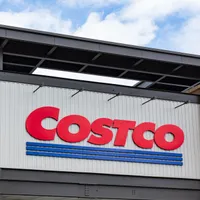10 Worst Things to Buy in Bulk at Costco
Costco is well-known for its high quality products and low prices. But it's not always the wisest choice to buy these 10 products in bulk.

Rachael Green
Profit and prosper with the best of Kiplinger's advice on investing, taxes, retirement, personal finance and much more. Delivered daily. Enter your email in the box and click Sign Me Up.
You are now subscribed
Your newsletter sign-up was successful
Want to add more newsletters?

Delivered daily
Kiplinger Today
Profit and prosper with the best of Kiplinger's advice on investing, taxes, retirement, personal finance and much more delivered daily. Smart money moves start here.

Sent five days a week
Kiplinger A Step Ahead
Get practical help to make better financial decisions in your everyday life, from spending to savings on top deals.

Delivered daily
Kiplinger Closing Bell
Get today's biggest financial and investing headlines delivered to your inbox every day the U.S. stock market is open.

Sent twice a week
Kiplinger Adviser Intel
Financial pros across the country share best practices and fresh tactics to preserve and grow your wealth.

Delivered weekly
Kiplinger Tax Tips
Trim your federal and state tax bills with practical tax-planning and tax-cutting strategies.

Sent twice a week
Kiplinger Retirement Tips
Your twice-a-week guide to planning and enjoying a financially secure and richly rewarding retirement

Sent bimonthly.
Kiplinger Adviser Angle
Insights for advisers, wealth managers and other financial professionals.

Sent twice a week
Kiplinger Investing Weekly
Your twice-a-week roundup of promising stocks, funds, companies and industries you should consider, ones you should avoid, and why.

Sent weekly for six weeks
Kiplinger Invest for Retirement
Your step-by-step six-part series on how to invest for retirement, from devising a successful strategy to exactly which investments to choose.
Costco gets big ups from shoppers and shopping experts alike for its high-quality products with low prices. We've been impressed, too, highlighting some of the best things retirees should buy at Costco, as well as some of the warehouse club's best store-branded Kirkland Signature products.
A Costco membership costs between $65 to $130. So, it's tempting to wring as much as you can from every Costco run: bulk packages of toilet paper, eggs in 24-packs, 10-pound bags of flour or a 12-pound Japanese Wagyu boneless ribeye roast.
As enticing as buying everything in bulk at Costco might be, it's not always the wisest choice.
Understanding per-unit pricing is critical when buying in bulk. So, too, is understanding that you might not use up such large quantities before they spoil or expire. Here are 10 things you should think twice about buying in bulk at Costco.
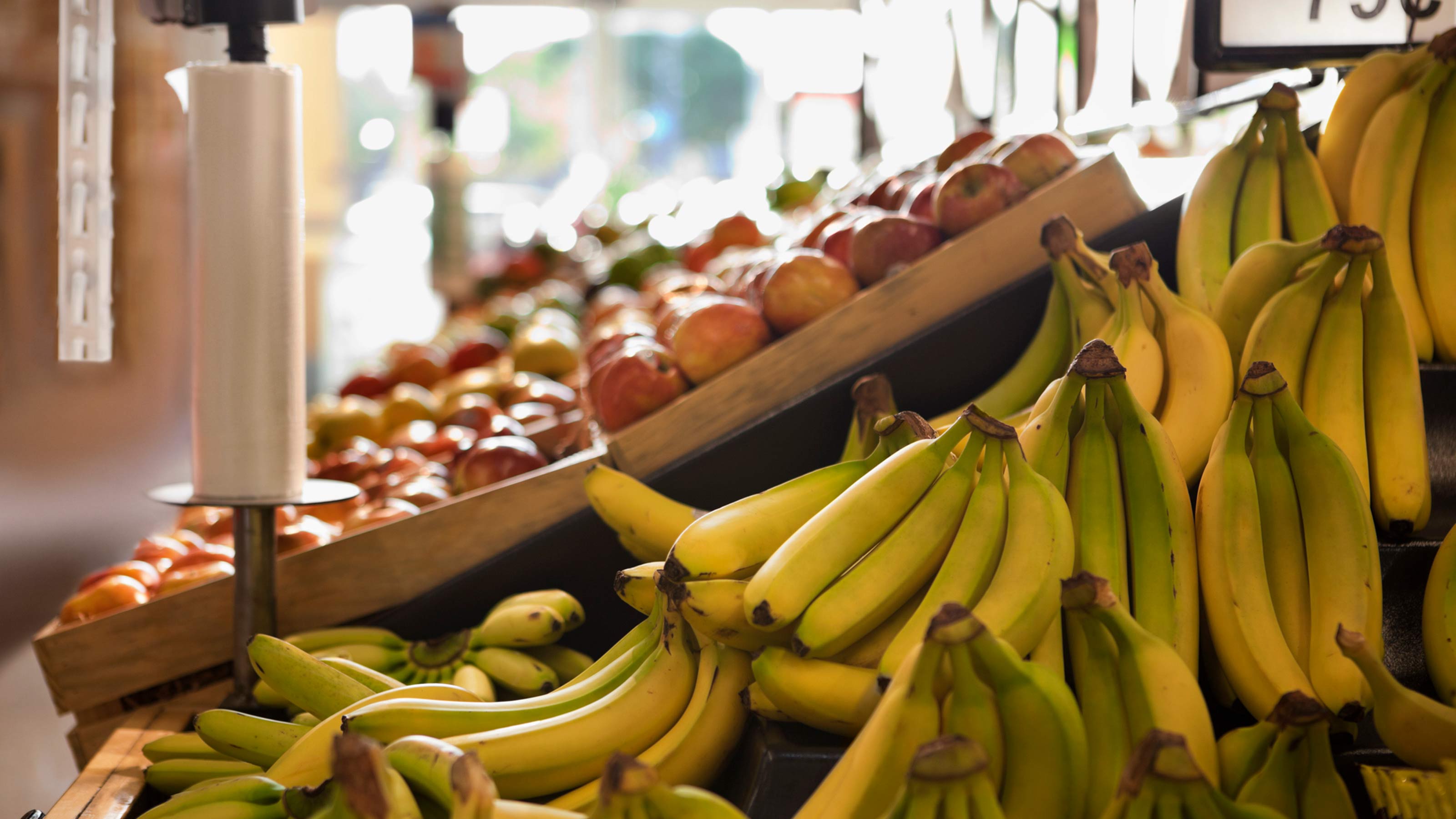
1. Fresh produce
Fresh fruits and vegetables are certainly healthy, but they have a short shelf life. Unless you have a large family to feed, you probably won't be able to get through that 10-pound bag of onions before they start to get moldy.
Think about it, can you get through a prepackaged bunch of bananas – at Costco, you can’t break them off into smaller bunches like you can at a supermarket – before they turn brown and mushy?
If you do want to take advantage of bulk pricing on fresh produce, plan to prep and freeze what you can't eat right away. Slice up those bananas and pineapples and freeze them in portions that you can toss in a smoothie or defrost to top your yogurt.
While that will prevent your bulk buy from spoiling, you can save yourself that extra effort by just grabbing already-frozen produce at Costco. Compare the per unit price to see whether you save more with the frozen bag or with fresh produce that you freeze yourself.
If you're looking to maximize your Costco savings, the best credit cards for groceries help achieve this.
Explore our top picks, powered by Bankrate. Advertising disclosure.
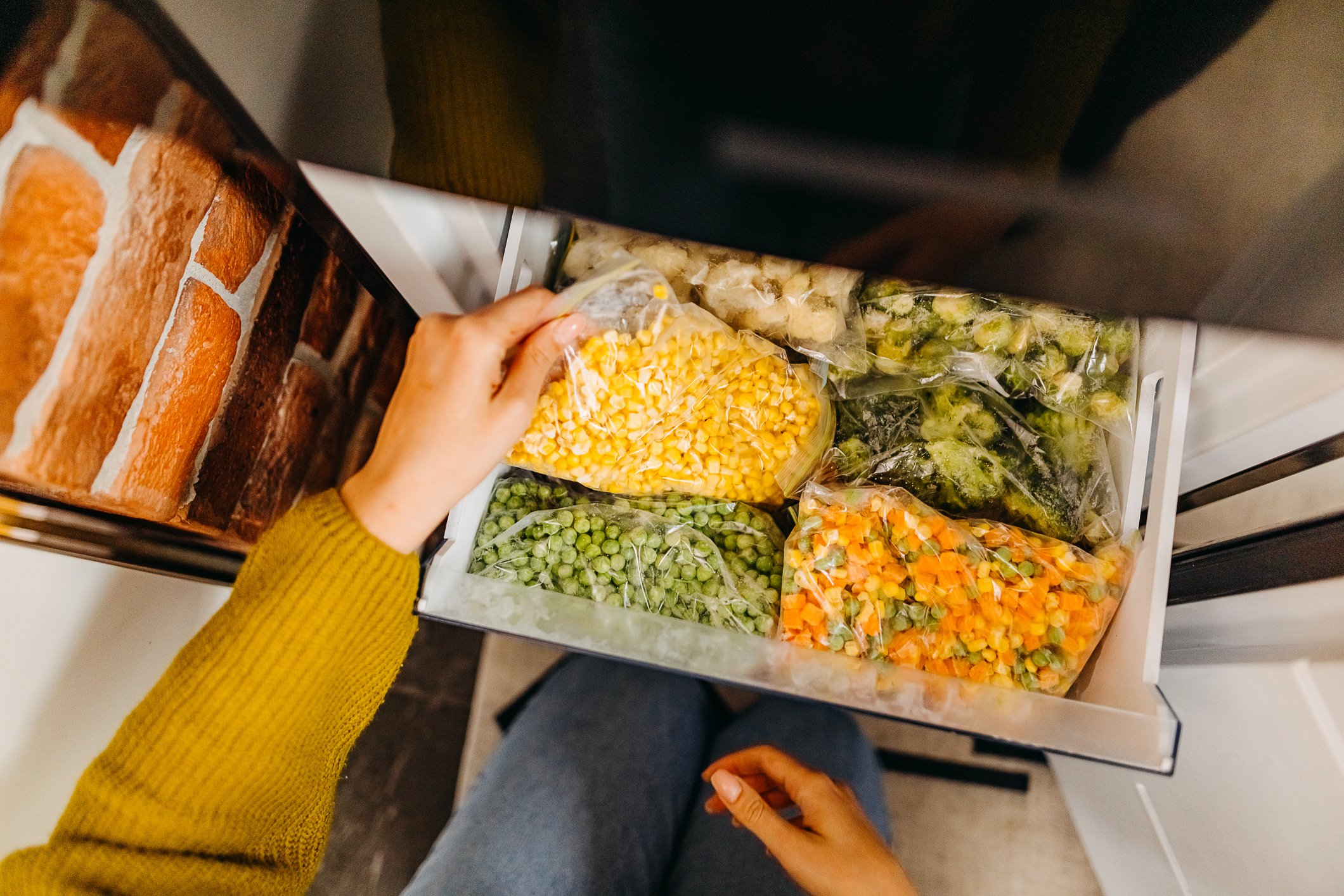
2. Frozen produce
Unlike fresh produce, frozen fruits and vegetables can’t go bad. Or can they? Shopping experts advise consumers to practice caution at the freezer case. That big bag of frozen broccoli that seems like such a bargain might not be in the end.
Vegetables can be stored for up to 3-6 months in the freezer before the quality starts to get compromised, according to Good Housekeeping. Each time you open the bag, you expose those frozen veggies to air and temperature changes that can cause freezer burn. So, if your family won't finish the bag in that time frame, you might be better off buying smaller bags of frozen vegetables and leaving behind that giant box of peas.
If you insist on buying the Costco-sized bags of frozen veggies, you should portion them out into smaller bags when you get home. That way, most of it can stay at a consistently cold temp while only the veggies you're cooking with that night get exposed to fluctuating temperatures.

3. Liquid cleaning products
It might come as a surprise, but liquid cleaning products don’t last forever. As such, buying them in bulk isn’t necessarily such a thrifty idea.
Anything containing bleach, for example, only has a shelf life of six months. If you've got a bottle older than that, you're not getting the same sanitizing or stain-removing power as you got when it was fresh. While other ingredients in liquid cleaning formulas typically last about one or two years, their potency still degrades over time, as do any fragrances you might have chosen the product for.
The best way to take advantage of bulk pricing, then, is to opt for powdered products. Without the water, the product is much more shelf-stable.
For cleaning products that don't have a powdered version, opt for sizes that you can use up by the expiration date. Again, for bleach-based cleaners, that's about six months. For most other cleaners, aim for a maximum of one year's worth of the product.

4. Cereal
You run the risk of your cereal going stale if you buy it in bulk and don’t eat it fast enough. But shopping experts say there’s an even bigger reason to avoid the cereal aisle at Costco: You can get a better price on a box of name-brand cereal at the supermarket by combining sales and coupons.
Buying in bulk isn't always the cheapest option, sometimes you might get a better deal by using a grocery coupon. Compare prices and check the best buy date before adding cereal to your cart to make sure you're getting the best price and not over-buying.
Stack Social is offering a Gold Star Membership + $20 Digital Shop Card for the price of a $65 Gold Star membership.
It is also offering an Executive Gold Star Membership + $40 Shop Card for the price of a $130 Executive Gold Star membership.

5. Over-the-counter medicines
Costco’s pharmacy aisles (next to the pharmacy, naturally) are chock full of those extra-large bottles or boxes of over-the-counter medicines, from sinus medication and aspirin to vitamins and diet supplements.
For many of these, however, you're better off sticking to smaller quantities unless it's something you take daily. Medications and supplements often lose potency as they get older. So, for a "take-as-needed" drug like Tylenol or cough medicine, your family may not use up the bulk-sized bottle before that happens.

6. Personal care and beauty products
Be cautious when weighing whether to buy personal care or beauty products in bulk at Costco. As with other things on this list, limit the bulk buying to products you go through quickly, like sunscreen in summer or body wash.
For things you might use sparingly, like serums or face masks, be cautious of the shelf life and stick to quantities that you know you'll be able to use up before they lose their efficacy.
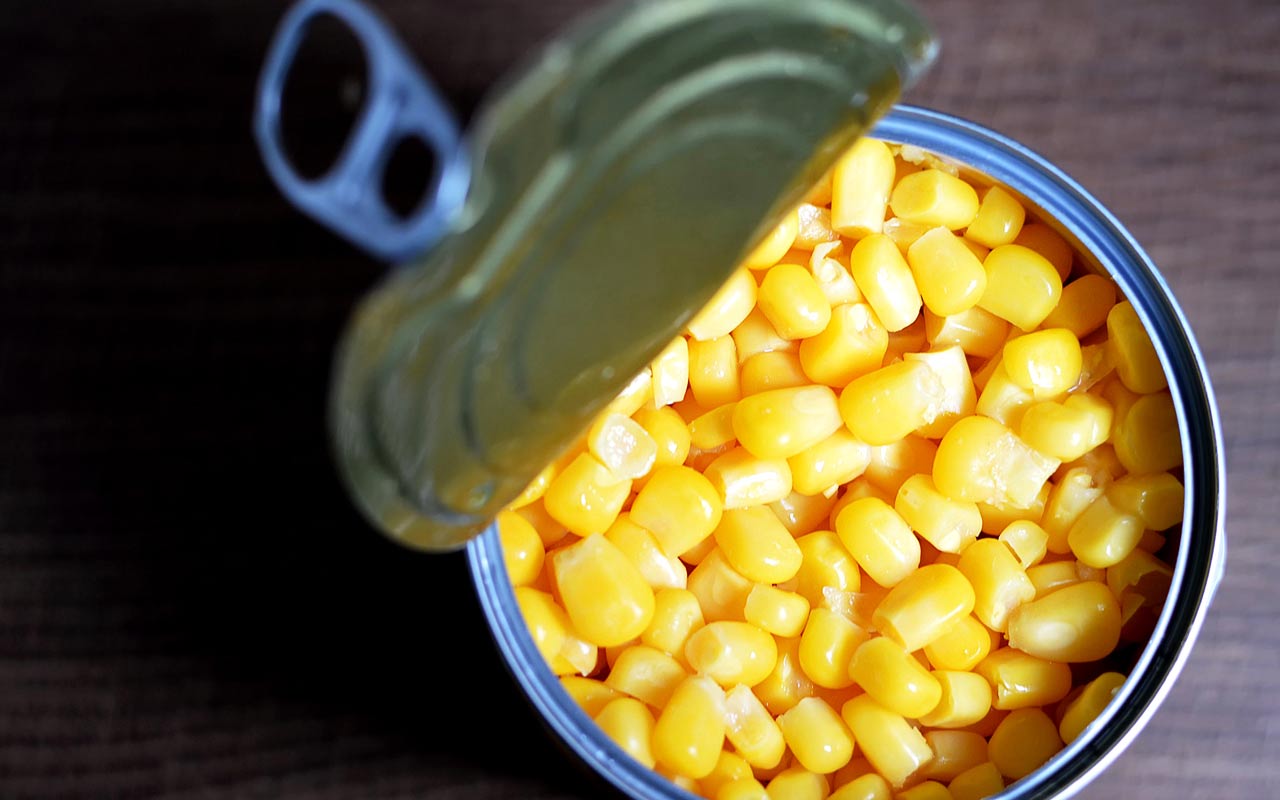
7. Canned vegetables
A 12-pack of canned creamed corn may look like a great deal at Costco, but look closer and you’ll notice those cans have expiration dates on them. And really, how much creamed corn can you go through in a year?
If you prefer national brands, hold on to your manufacturer coupons until your brand of choice goes on sale at the supermarket. Grocers hold frequent sales on canned goods. Don’t be surprised to see “buy-2-get-3-free” deals periodically. Shopping experts say February is a great month for big sales on canned goods.
Alternatively, sample the supermarket’s generic brand. The everyday price per can might even be lower than the per-can price of a national brand purchased in bulk at Costco.
Get more spending tips and other personal finance insights straight to your inbox. Subscribe to Kiplinger's free daily newsletter, A Step Ahead.

8. Salty snacks
As with bulk-purchases cereal, you run the risk of your salty snacks going stale if you buy them in oversized packages. Most families won't go through a 28-ounce bag of potato chips before they're stale.
Smaller bags of name-brand potato chips, tortilla chips and similar salty snacks frequently go on sale at supermarkets, sometimes at 50% off. Stock up ahead of major sporting events, when snack manufacturers run some of their best promotions.
If they make a regular appearance in school lunches, check the aisles for a bulk package of smaller bags of snacks. And if you have to get the giant bag of chips, consider transferring the contents to an airtight container when you get home so they don't go stale quite as quickly.
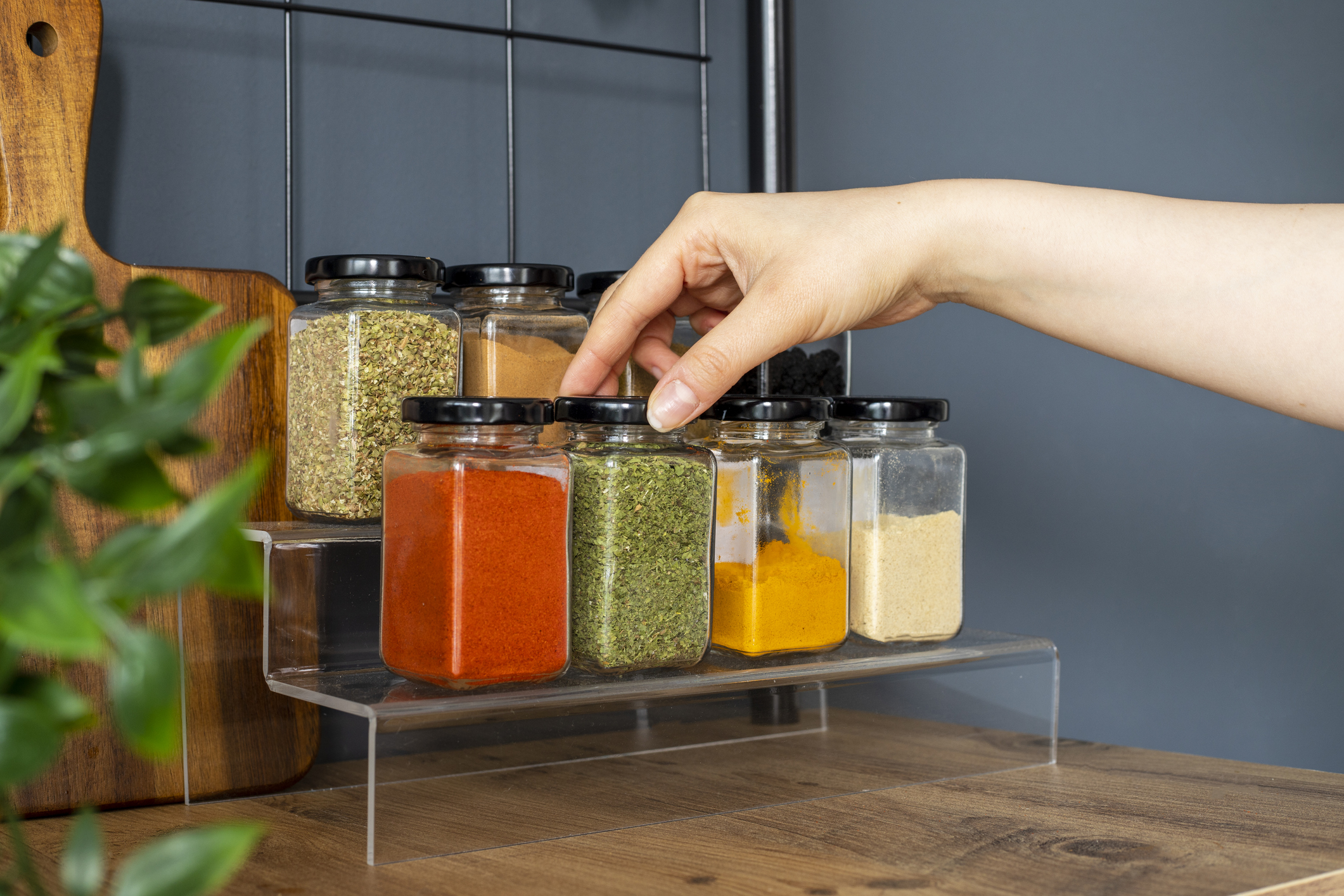
9. Spices
For home cooks, buying spices in bulk usually doesn’t pay off. This is especially true when it comes to those spices that you rarely use in your go-to recipes. Good luck ever getting to the bottom of that 1.7-pound container of dried basil.
Worse, spices lose flavor and potency over time, especially if its ground. The longer you keep a spice in the pantry, the less flavorful it becomes. According to Bon Appétit, you technically shouldn’t keep ground spices for more than three months and whole spices should only be stored for up to eight to 10 months.
That means you're best bet for taking advantage of bulk deals on spices is to opt for whole versions (like whole black peppercorns) that you can grind as needed. And, make sure you only buy those bulk whole spices that you actually use regularly.
For the odd spice that pops up in a recipe you wanted to try, it's better to get the smallest bottle you can. If you like the flavor enough to add it to your rotation or experiment with it in other dishes, that's when you can consider stocking up on a larger container of the whole spice version.
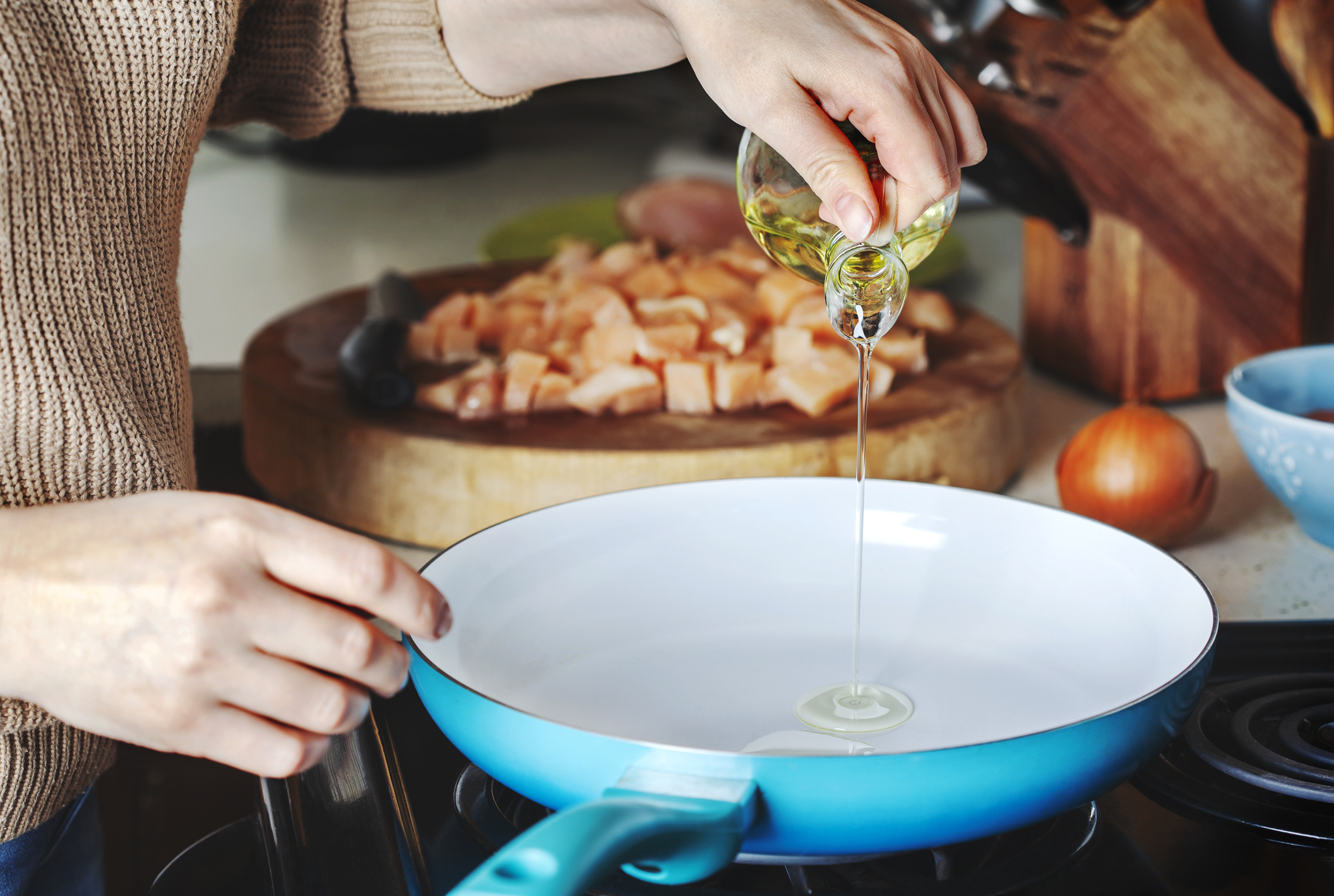
10. Cooking Oil
Unless you’re running a restaurant or deep-frying turkeys on weekends, those bulk sizes of cooking oil aren’t the bargain you think they are.
That’s because cooking oils, like other products on this list, have a relatively short shelf life. Olive or vegetable oils can be kept unopened in the pantry for four months, according to the USDA. This is especially important for any oils you might eat fresh, like that extra virgin olive oil you drizzle over your salad. The rancid flavor of expired olive oil can ruin your favorite salad dressing recipe.
Any money you might’ve saved up front is lost once you’re forced to dump out rancid oil. So no, you probably don't need to buy that three-liter bottle of Kirkland Signature olive oil.
Related Content
Profit and prosper with the best of Kiplinger's advice on investing, taxes, retirement, personal finance and much more. Delivered daily. Enter your email in the box and click Sign Me Up.

Bob was Senior Editor at Kiplinger.com for seven years and is now a contributor to the website. He has more than 40 years of experience in online, print and visual journalism. Bob has worked as an award-winning writer and editor in the Washington, D.C., market as well as at news organizations in New York, Michigan and California. Bob joined Kiplinger in 2016, bringing a wealth of expertise covering retail, entertainment, and money-saving trends and topics. He was one of the first journalists at a daily news organization to aggressively cover retail as a specialty and has been lauded in the retail industry for his expertise. Bob has also been an adjunct and associate professor of print, online and visual journalism at Syracuse University and Ithaca College. He has a master’s degree from Syracuse University’s S.I. Newhouse School of Public Communications and a bachelor’s degree in communications and theater from Hope College.
- Rachael GreenPersonal finance eCommerce writer
-
 Dow Adds 1,206 Points to Top 50,000: Stock Market Today
Dow Adds 1,206 Points to Top 50,000: Stock Market TodayThe S&P 500 and Nasdaq also had strong finishes to a volatile week, with beaten-down tech stocks outperforming.
-
 Ask the Tax Editor: Federal Income Tax Deductions
Ask the Tax Editor: Federal Income Tax DeductionsAsk the Editor In this week's Ask the Editor Q&A, Joy Taylor answers questions on federal income tax deductions
-
 States With No-Fault Car Insurance Laws (and How No-Fault Car Insurance Works)
States With No-Fault Car Insurance Laws (and How No-Fault Car Insurance Works)A breakdown of the confusing rules around no-fault car insurance in every state where it exists.
-
 No-Fault Car Insurance States and What Drivers Need to Know
No-Fault Car Insurance States and What Drivers Need to KnowA breakdown of the confusing rules around no-fault car insurance in every state where it exists.
-
 7 Frugal Habits to Keep Even When You're Rich
7 Frugal Habits to Keep Even When You're RichSome frugal habits are worth it, no matter what tax bracket you're in.
-
 How Much It Costs to Host a Super Bowl Party in 2026
How Much It Costs to Host a Super Bowl Party in 2026Hosting a Super Bowl party in 2026 could cost you. Here's a breakdown of food, drink and entertainment costs — plus ways to save.
-
 3 Reasons to Use a 5-Year CD As You Approach Retirement
3 Reasons to Use a 5-Year CD As You Approach RetirementA five-year CD can help you reach other milestones as you approach retirement.
-
 How to Watch the 2026 Winter Olympics Without Overpaying
How to Watch the 2026 Winter Olympics Without OverpayingHere’s how to stream the 2026 Winter Olympics live, including low-cost viewing options, Peacock access and ways to catch your favorite athletes and events from anywhere.
-
 Here’s How to Stream the Super Bowl for Less
Here’s How to Stream the Super Bowl for LessWe'll show you the least expensive ways to stream football's biggest event.
-
 The Cost of Leaving Your Money in a Low-Rate Account
The Cost of Leaving Your Money in a Low-Rate AccountWhy parking your cash in low-yield accounts could be costing you, and smarter alternatives that preserve liquidity while boosting returns.
-
 This Is How You Can Land a Job You'll Love
This Is How You Can Land a Job You'll Love"Work How You Are Wired" leads job seekers on a journey of self-discovery that could help them snag the job of their dreams.


